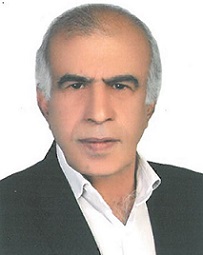Hawking, one of the world’s
foremost scientists, is
considering Turok’s
invitation to join him there
for 2-3 months a year. Other
British physicists will be
offered similar sabbaticals
to engage in uninterrupted
high-level research. Turok
said many colleagues were
“so ground down by
bureaucracy, teaching and
hunting for grants that it
is increasingly hard to do
good research”.
His decision to quit Britain
reflected the Labour
government’s failure to fund
and manage science properly,
he added. “Over the years it
has become increasingly
clear that British
politicians understand very
little of how science works
and of its value for the
country and its economy,” he
said.
He cited Tony Blair’s
decision to appoint Malcolm
Wicks, a career politician
with no scientific training,
as science minister.
Wicks controversially merged
the Particle Physics and
Astronomy Research Council
and the Council for the
Central Laboratory of the
Research Councils, which
between them funded most of
Britain’s physics research.
The merger was already
highly complex but it
descended into chaos after
Gordon Brown replaced Wicks
with Ian Pearson, who also
has no scientific
background.
A series of elementary
arithmetical errors
generated a budget shortfall
of £80m; earlier this year
the Science and Technology
Facilities Council, the body
created by the merger,
announced that at least 600
physicists would lose their
jobs. It also warned that
Britain would be pulling out
of a number of global
science partnerships. A
government inquiry into the
debacle is now under way.
“It is ludicrous that
Britain’s participation in
some of the greatest
scientific projects of today
such as the search for dark
matter, the hunt for the
elementary particles like
the Higgs Boson and the
first detection of gravity
waves, is subjects to the
whims of people with no
special competence and
little experience of these
matters” said Turok,
referring to three areas of
high-level research. “ What
it reflects is the failure
of the political
establishment to understand
just how important science
is for Britain’s future.
Advanced research drives the
quality of higher education,
science and technology and
generates invaluable
spin-offs.”
Turok will leave Cambridge
in the autumn to become
director of the Perimeter
Institute, a centre for
theoretical physics founded
seven years ago by Mike
Lazaridis, creator of the
BlackBerry hand-held device.
His departure marks the end
of his hopes of creating a
Hawking Institute in
Cambridge. He had planned to
expand the Centre for
Theoretical Cosmology, which
he heads, and rename it
after his colleague in the
hope of creating a global
centre for advanced physics
in Britain. However, after
several years of asking
university authorities and
research councils to part
with £20m he has given up.
He contrasts such sums with
the £75m poured into
Perimeter by Lazaridis and
his colleagues, and the
further £50m invested by the
Canadian government and the
state of Ontario.
South Africa-born Turok
studied at Cambridge and
Imperial College, London,
but his career has also
taken him across the
Atlantic several times
before. He was professor of
physics at Princeton when
Cambridge lured him back 11
years ago.
His position at the centre
of British and world
cosmology arises from his
pioneering work on the big
bang, when the universe,
matter and time itself are
popularly believed to have
burst into existence. He
challenges that idea,
suggesting that the big bang
was simply one among many,
perhaps millions, of similar
events.
John Denham, secretary of
state for innovation,
universities and skills,
said he did not accept that
science had suffered under
Labour. “Over the past 10
years government funding for
science and research has
doubled in real terms,” he
said. “Currently, more than
£500m of this funding is
spent by research councils
on physics research, all of
which received budget
increases.”
